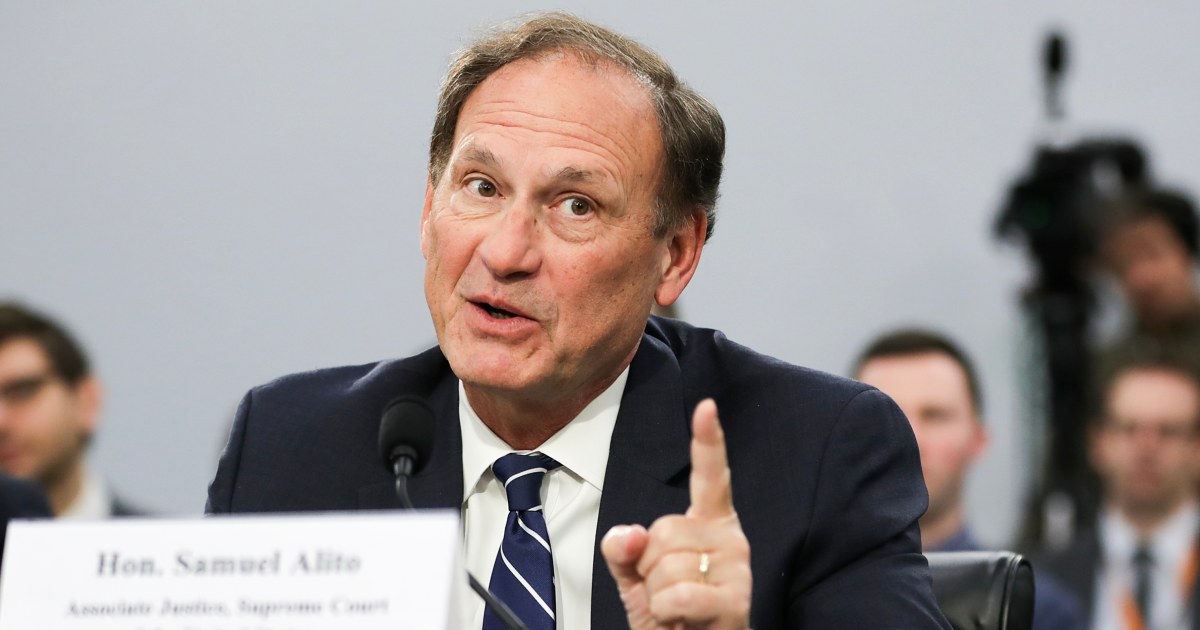
WASHINGTON — The Supreme Court on Tuesday weighs a tax case that attracted scrutiny after Justice Samuel Alito rejected claims that he should not participate in it because of his ties with one of the lawyers involved.
The case, Moore v. U.S., concerns a novel constitutional question about whether people can be forced to pay taxes on stakes in foreign-owned companies even if they have not derived any income from them.
David Rivkin, one of the lawyers involved in the case against the federal government, interviewed Alito in two articles published in The Wall Street Journal that addressed recent claims of ethics violations on the court and the power of Congress to legislate on the issue.
After it faced pressure for months over alleged ethics lapses, the court last month announced a new code of conduct that immediately attracted criticism because the justices are left to enforce it themselves.
In September, Alito issued a statement saying there was “no valid reason” for him to step aside in the tax case.
Rivkin represents Washington state-based Charles and Kathleen Moore, who invested in an India-based company. He is not arguing the case Tuesday.
It is a rare occasion for the Supreme Court to delve into the meaning of the Constitution’s 16th Amendment, which outlines Congress’ power to order the collection of income taxes.
Some tax experts say the case could have broad ramifications, leading to more challenges to other tax provisions and potentially threatening any future effort to enact a “wealth tax.”
The case focuses on a provision of the 2017 Tax Cuts and Jobs Act that imposed a one-off tax on shares held in foreign companies. It stated that people could not defer paying taxes on ownership stakes in such companies.
The Moores say that in 2005, they invested $40,000 in a company called KisanKraft Machine Tools. Although the company was profitable, they say they did not receive dividends, with the money instead being reinvested in the business. Because of that, the Moores did not pay taxes on what the U.S. government defined as income from the company from 2006 to 2017.
After the new law was enacted, the Moores ended up paying almost $15,000 in additional taxes, which they then sought a refund for. They argue that the tax was unlawful on the grounds that an increase in the value of a capital investment does not constitute income.
A federal judge and the San Francisco-based 9th U.S. Circuit Court of Appeals both ruled in favor of the government, prompting the Moores to seek Supreme Court review.
#Supreme #Court #hears #tax #case #drew #calls #Justice #Alitos #recusal











Leave a Reply